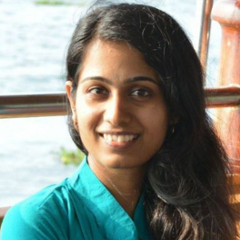Revisiting KG George's 'Irakal' in the wake of Koodathayi serial murders

Mail This Article
Sixteen years before Jolly Joseph allegedly served cyanide-laced mutton soup to Annamma in 2002 – the first of the six people suspected to have been murdered in Koodathayi village in Kerala's Kozhikode district – Malayalam's revolutionary filmmaker KG George had presented a thriller – Irakal, meaning victims – in 1986 that explored psychology of violence in a family.
Death, blood, momentary pleasures
The thrust on violence was evident from the opening scenes. The movie begins with protagonist Baby (Ganesh Kumar) who looks at a red electric cable and puts it around his neck. Later, he pricks his finger with the pointed arm of a compass and places his blooded finger on a woman's photograph. Soon comes a ragging scene from the college where Baby attacks his junior with a knife.
The movie further reveals Baby's penchant for violence with his remarks to a rubber tapper. “It would have been nice to see the rubber oozing blood. If the milk was red in colour, it would have looked so real and different.”
It is hard to ignore the similarities between silver screen's Baby and Jolly Joseph, the prime suspect in the Koodathayi serial murder case. Media had reported that Jolly had a dislike for girl children and hence she killed the little girl in the family. Some reports suggested that Jolly got a high while witnessing the deaths.

While Baby in Irakal is a spoilt son from a rich family and doesn't worry much about his wealth around, Jolly was reportedly in dire need of more wealth and property. However, their behavioural patterns sound similar as both of them eliminated people who stood in their way.
The family setting
The pretext that Baby is a serial killer is just a sub-text of the film. In fact, dysfunctional family's obsession with wealth accumulation and scant respect for moral values help him find a counter-narrative to his violent behaviour. Baby's father is wealthy enough but his love for money makes him choose wicked ways. The character of Annie (Srividya) - Baby's sister - is perhaps one of the boldest cinematic takes to depict woman’s physical desires. Baby's brother Koshy is equally ruthless while his second brother Sunny is lazy and alcoholic and treads his own path.
After Baby injured his junior, the family backs him rather than making him realise his mistake. There is a scene where Baby is seen talking to his Cardinal-uncle, his mother's brother (Bharath Gopi).
Uncle: “Don't you love your parents?”

Baby: “No.”
Uncle: “Why do you say so?”
Baby: “There is no love in the family. So I too don't have.”
Uncle: “Why do you think so?”
Baby: “That's what I have felt.”
Finally, before he gives up, uncle offers a spiritual assurance saying, “Even if no one loves you, God is there to love you.”
But Baby refutes by saying: “I don't know about such things.”
For him, it was the rejection in love that made him kill his girlfriend's (Radha) fiance (Venu Nagavalli).
Similarities with Koodathyi incident

Family equations have reportedly provoked prime accused Jolly to commit murders. Going by media reports, she killed her mother-in-law to take control of the finances of the house. She reportedly killed her husband Roy when the latter fumed over her friendship with other men.
In fact, there is a striking similarity between Jolly and Irakal's Annie. Annie is as crude as her father and brothers. Her wish to free herself from marital bondage and live a life of her own is in sharp contrast to the concepts of 'ideal woman' in a patriarchal society. Apparently, Jolly's crime became highly sensational as she is a woman.

The film's relevance
The film had all ingredients - sentiments, abuse, emotions, drama and ensemble cast – to be a blockbuster. Unfortunately, it did not work . Much later, the film received rave reviews and two state awards for the second-best film and the best story. Many years later, it was selected for the prestigious Muttathu Varkey Award as well. It was the first time that a screenplay was chosen for the honour. “Never in the history of Malayalam cinema has there been another screenplay that is so taut in its structure and so stark in appeal. It offers a gripping visual tale of an entire culture that could not have been told any better. The script is brilliant in carving out a grim reality, while capturing the sparse poetry, poignancy, and complexity of human life,” wrote one of the judges of the award back then.
It was, indeed, a fitting tribute to K G George's script writing skills.

Irakal was KG George's first independent screenplay. In an interview to Sahapedia, Geroge had admitted that he wrote the script in two week's sitting at actor Sukumaran's – who was also the producer of the movie – house at Ooty.
“Within the span of a decade from my first movie Swapnadanam to Irakal I had lost all my social and political dreamscapes. The youth of my generation had a lot of innocent expectations about the world in general. Our value system had collapsed by the time a generation akin to what you see in Irakal had evolved. The generation that preceded them, that is, the parents themselves, had caused such a disintegration. Irakal is a symbol of that unfortunate transformation. It was a study in the fast-changing political scenario of the country,” he had revealed.
The theme of Irakal still creates ripples as Koodathayi serial murders is all set to get a few filmy versions. While one film is expected to have actor Mohanlal playing the investigative officer, another titled 'Koodathai' will have Dini Daniel in the lead. A TV show titled 'Krithyam' too has been announced based on the case where the lead character has been named Solly.


